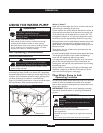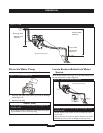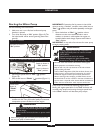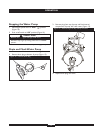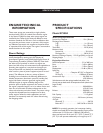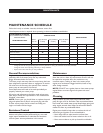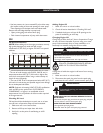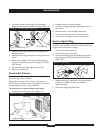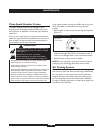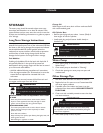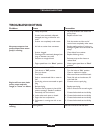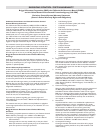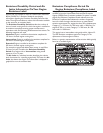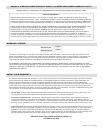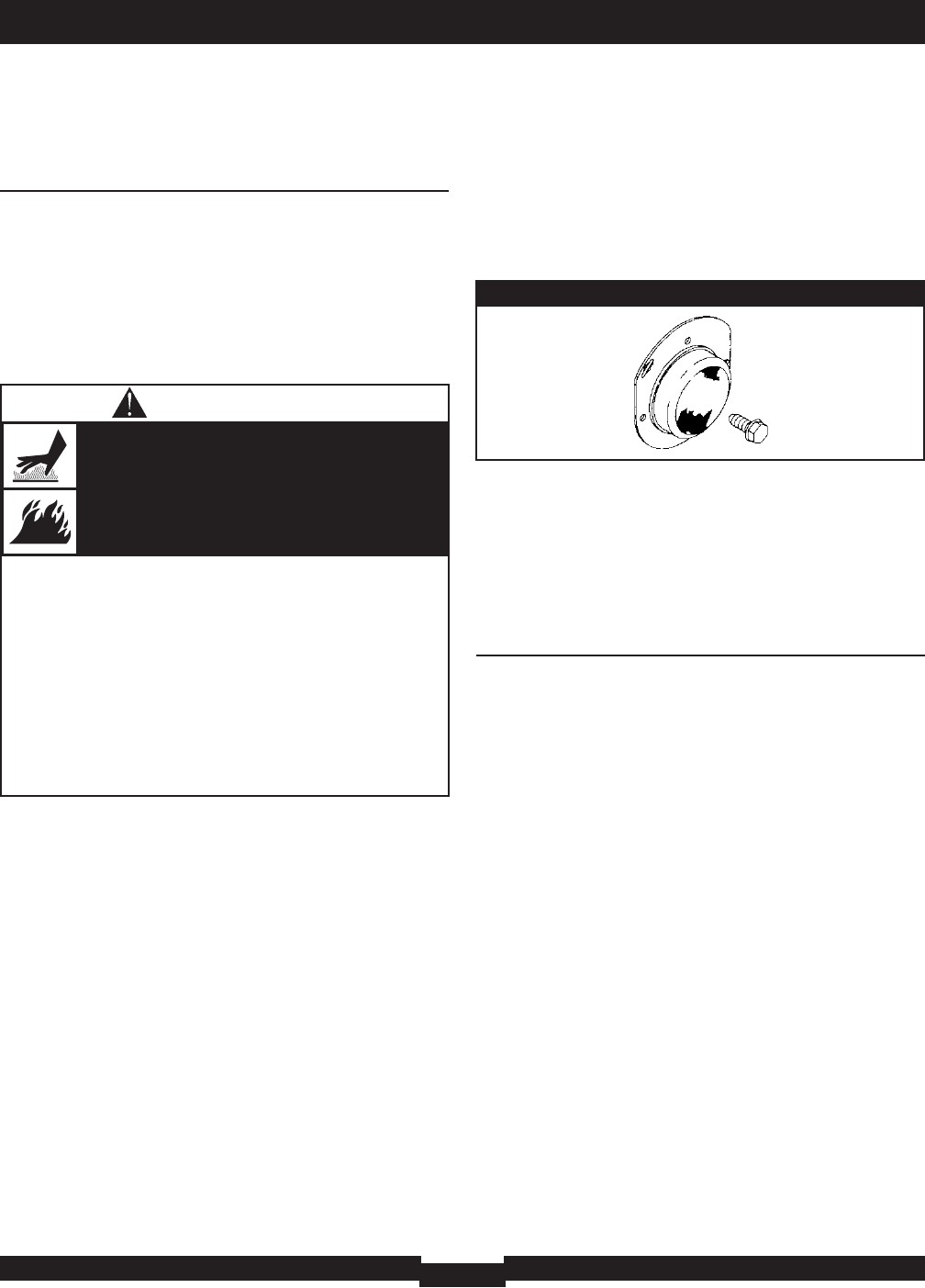
MAINTENANCE
16
Clean Spark Arrester Screen
The engine exhaust muffler may be equipped a spark
arrester screen. If equipped, inspect and clean the screen
every 50 hours of operation or once each year, whichever
comes first.
If you use your water pump on any forest-covered, brush-
covered, or grass-covered unimproved land, it must have a
spark arrester.The spark arrester must be maintained in
good condition by the owner/operator.
If the engine has been running, the muffler will be very hot.
Allow the muffler to cool before servicing the spark
arrester.
• Remove spark arrester screen for cleaning and inspection
(Figure 17).
• Inspect screen and replace if torn, perforated or
otherwise damaged. DO NOT use a defective screen. If
screen is not damaged, clean it with commercial solvent.
• Reattach spark arrester screen to muffler.
NOTE:You can purchase a new spark arrester screen by
contacting your local Briggs & Stratton service center.
Air Cooling System
Over time debris may accumulate in cylinder cooling fins
and cannot be observed without partial engine disassembly.
For this reason, we recommend you have an authorized
Briggs & Stratton service dealer clean the cooling system
per recommended intervals (see “Maintenance Schedule”
on page 13). Equally important is to keep top of engine free
from debris. See “Cleaning”.
Figure 17 - Spark Arrester
Typical Spark
Arrester Shown
• DO NOT touch hot surfaces and avoid hot exhaust gases.
• Allow equipment to cool before touching.
• Keep at least 5 ft. (152 cm) clearance on all sides of water
pump including overhead.
• Code of Federal Regulation (CFR) Title 36 Parks, Forests, and
Public Property require equipment powered by an internal
combustion engine to have a spark arrester, maintained in
effective working order, complying to USDA Forest service
standard 5100-1C or later revision. In the State of California a
spark arrester is required under section 4442 of the California
Public resources code. Other states may have similar laws.
Running engines produce heat.Temperature of
muffler and nearby areas can reach or exceed
150°F (65°C).
Severe burns can occur on contact.
Exhaust heat/gases can ignite combustibles,
structures or damage fuel tank causing a fire.
WARNING



